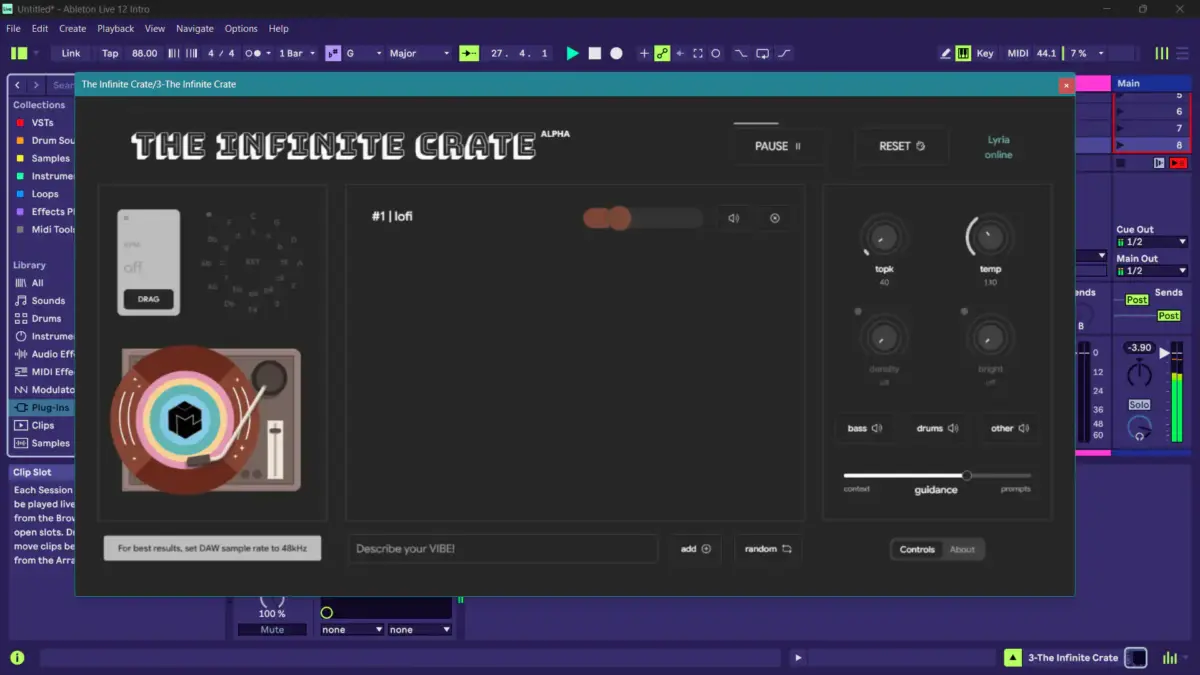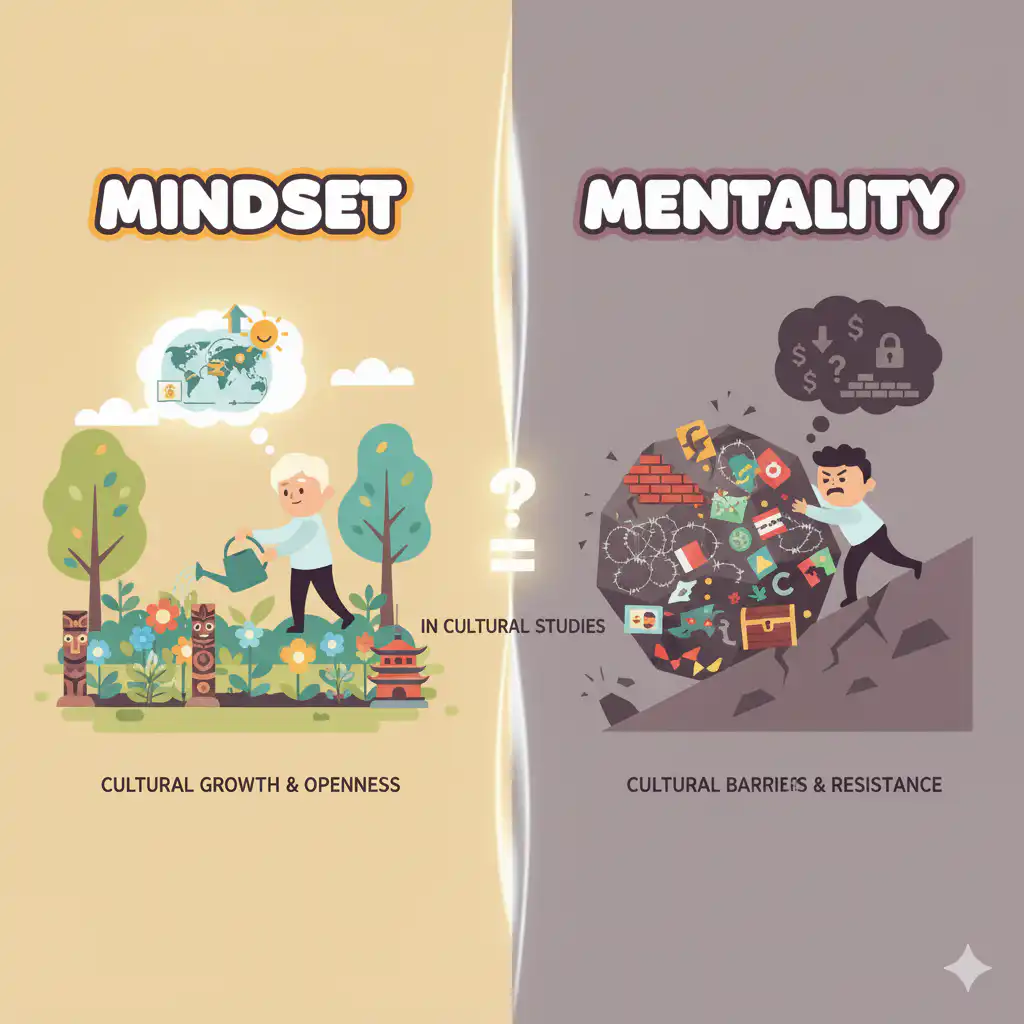Hmmm, positiv vs. negativ? 🤔
Die Textualisierung zur Visualisierung…
Gemini 2.5 Flash sagt auf die Frage: what is the difference between mindset and mentality in cultural studies?
In cultural studies, while often used interchangeably in everyday language, mindset and mentality have distinct meanings. Mentality is a broader, more encompassing term that refers to the established, enduring psychological makeup and way of thinking of a group or a nation. It’s often seen as a reflection of a society’s history, values, and traditions. This image evokes the enduring „Cold War mentality“ that once defined global politics, a mindset of mistrust and division. In contrast, a mindset is a more specific and often temporary set of beliefs, attitudes, and cognitive frameworks an individual or group adopts in response to a particular situation or domain. It’s often related to a person’s beliefs about a specific topic, such as „growth mindset“ (the belief that abilities can be developed) versus „fixed mindset“ (the belief that abilities are innate and unchangeable).
Mentality: A Collective, Enduring Framework
Mentality refers to a deep-seated, collective way of thinking that is characteristic of a society or group. It’s the integrated worldview of a culture, shaped by historical, social, and philosophical factors. Mentality is often studied in relation to national or ethnic identity, highlighting the unique attitudes, norms, and values that distinguish one group from another. It’s a fundamental part of the cultural fabric and is resistant to rapid change. For example, the mentality of a collectivist society is one that prioritizes the group’s needs over individual desires, while an individualistic society’s mentality is the opposite.
Mindset: An Individual or Situational Attitude
Mindset is a more dynamic and specific concept. It’s a cognitive framework that an individual or group uses to interpret information and guide behavior within a certain context. A mindset can be consciously developed or changed, and a person can hold different mindsets for different areas of life (e.g., an „entrepreneurial mindset“ for work and a „relaxed mindset“ on vacation). In cultural studies, the term „cultural mindset“ is often used to describe the set of beliefs and procedures activated by cultural cues in a specific situation. For instance, being in an individualistic cultural mindset might lead someone to focus on personal achievement, even if their broader cultural mentality is collectivistic.






